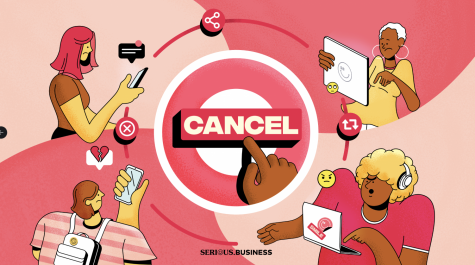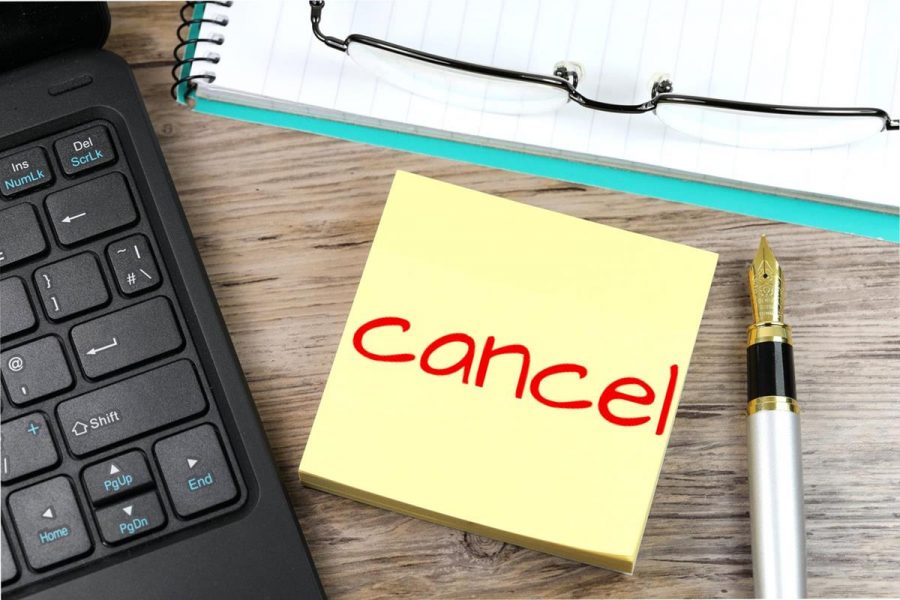Does cancel culture achieve what it intends?
Is our society being engulfed by cancel culture or modern day boycotting?
On Saturday, March 20, almost-billionaire and influencer Kylie Jenner shared an Instagram story seeking prayers and donations from her 222 million followers to a GoFundMe to help pay the medical bills of makeup artist Samuel Rauda. According to GoFundMe, Rauda was in an accident and “underwent major surgery last Sunday.” Social media took to a storm saying that Kylie as a billionaire should have paid it all off herself instead of pleading with her followers to do so.
Kylie broke her silence on this saying that she thought she was paying off the difference left in the GoFundMe and only shared it so others could also support it. This isn’t the first time Jenner has been “canceled.” In July, Kylie and her sister Kendall Jenner were accused of underpaying Bangladesh workers who made clothing for the sister’s line, Kendall and Kylie. Despite these incidences, Kylie’s brand, Kylie Cosmetics, continues to scale and this isn’t the first time when social media outrage did not correlate to long-term consequences for celebrities.
“The rise of ‘cancel culture’ and the idea of canceling someone coincides with a familiar pattern: A celebrity or other public figure does or says something offensive. A public backlash, often fueled by politically progressive social media, ensues,” said Aja Romano, writer for Vox.
This is all followed by calls to cancel the person, or what some insist is a modern-day boycott and attempt at taking back the relevance and power they had previously given these celebrities.
Cancel culture was seen in effect during the #MeToo Movement in exposing predators in Hollywood but many of those exposed returned to popularity not long after. Although intended to dethrone the most influential in our society, cancel culture in the long term, is ineffective in completely “canceling” these celebrities.

The proponents of cancel culture insist it gives a voice to the disenfranchised, and though this could have been the initial intention, today it has turned into a way for many on social media to rant about their least favorite person and then sit back and feel a sense of self-righteousness.
“People don’t understand that [social activist] organizing isn’t going online and cussing people out,” said Patrisse Khan-Cullors, co-founder of Black Lives Matter.
Instead of allowing people room to grow from past mistakes, it creates an environment of hostility and intolerance. Of course, abusers and known racists deserve to be called out and have their platform removed and so does Kylie Jenner for not paying her workers in Bangledesh, but a small mistake from a celebrity who is clearly apologetic from years ago is different than cases of abuses of power.
“I definitely think cancel culture is toxic and harmful. This generation has a sort of superiority complex where they think they can do no wrong and automatically have to hurt others,” said Saniya Wasti, junior. “I think people are wasting a lot of their time trying to cancel things and people for the tiniest things. However, I think holding people accountable in the present time is different and people with bad intentions should not have a platform.”
These sentiments seemed to be shared by many Central students. Ana Dragas, junior, also added that she feels cancel culture is ineffective.
“There are so many people that get canceled and they still have a huge platform and following or they wait it out, claim they changed, and go back to doing the same thing,” Dragas said.
Condemning the actions of those who have deeply hurt others is one thing but only creating a buzz that will surely die out quickly serves absolutely nobody.
“Throughout the last three centuries of human history, there have been major breakthroughs in communication that have transformed culture and society,” said Ms. Sanskruti Patel, history teacher. “What makes social media even more transformative is the decentralization of control and the fact that average people have found a medium to voice their thoughts and opinions and possibly reach millions of eyes and ears. This power can be a source of good and positive change and like with anything can also be abused and misused.”

Aminah Ahmed, a junior is a young dynamic activist and public speaker. She is the host of the talk show NextGen on Apple TV, Roku TV, and Amazon Fire TV....














